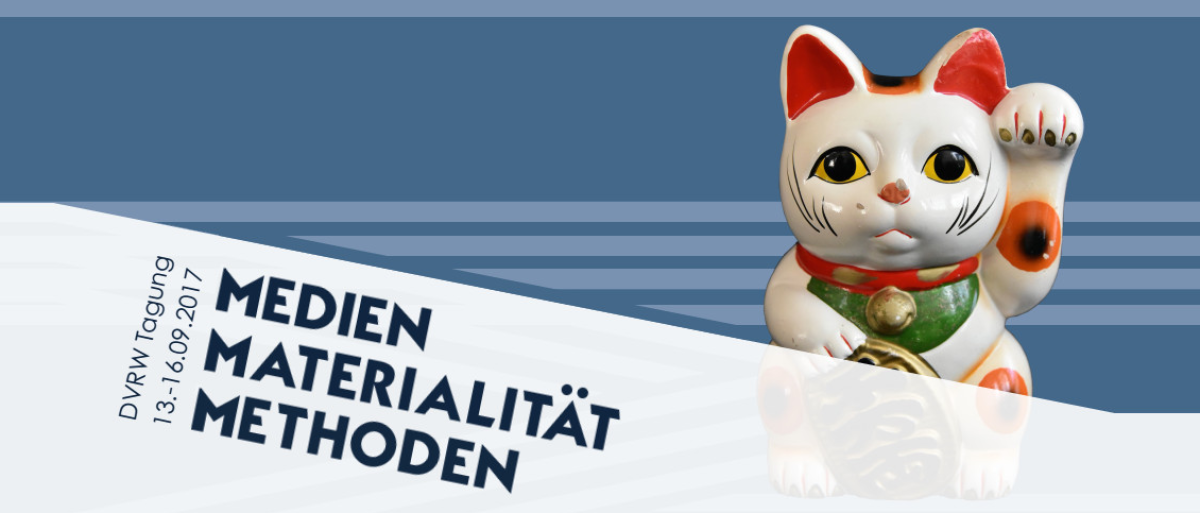Conference Report: Multiple Secularities @ the 32nd Annual DVRW Conference
The KFG's director Christoph Kleine organised and headed the panel "Boundaries of the Religious - The concept of 'Multiple Secularities' under scrutiny" at the 32nd Annual Conference of the Deutsche Vereinigung für Religionswissenschaft (DVRW) in Marburg, Germany (13-16 September 2017).
The panel introduced the multiple-secularities-approach, explaining that it starts from the observation that there is a multiplicity of relations between religious and non-religious spheres of action in pre-modern non-European cultures and asks for the relevant actors, relevant reference problems and effective guiding principles for the distinction of the religious from its secular environment. Accordingly, this differentiation-theoretical approach presupposes a transcultural relevance of the distinction between the religious and the non-religious and thus (apparently or actually) contradicts discourse-theoretical, genealogical and post-colonial approaches. In this panel, the tenability of the concept of 'multiple secularities' was critically examined and put up for discussion on the basis of selected case studies from the history of religions.
Panelists: Christoph Kleine, Katja Triplett, Hubert Seiwert, Markus Dreßler
Christoph Kleine - How universal is 'secularity'? Reflections on the cross-scultural transferability of a controversial concept.
This paper discussed whether the differentiation-theoretical approach of the multiple-secularities project developed in the context of modern societies can be applied to pre-modern non-European contexts. Illustrated by case studies from pre-modern East Asia, concrete possibilities for the operationalization of the controversial concept of "secularity" as a cross-cultural category for the description of cultural boundary processes between "religious" and "non-religious" fields of action, discourses and interpretations were discussed. In addition, the paper engaged with the question whether a focus on emic processes of social differentiation and practices of taxonomic differentiation can help to overcome fruitless debates on 'the concept of religion'.
Katja Triplett - Boundaries between religion and medicine in early modern Japan
Early modern Japan was to a time characterized by a struggle for ideas for a new social order after a period of devastating civil wars. In particular, the destruction or strict control of the previously so influential educational institutions of Buddhist temples by the military government played a major role. Ultimately, the educational monopoly of Buddhism was abandoned in a conflictual process in favour of neo-Confucian institutions. In this period of political and socio-cultural upheaval, the boundaries between the fields of religion and medicine were negotiated and redrawn. Contemporary debates served Katja Triplett as a case study for a critical reflection on the concept of "Multiple Secularities".
Hubert Seiwert - Secularity in pre-modern China: Was there a separation of religion and state in China?
Hubert Seiwert’s lecture addressed two closely linked questions: (1) is secularity a purely modern constellation or can it be observed in traditional societies that are not influenced by Western modernity? (2) How can we identify secularity in pre-modern societies where there is no concept of religion? The first question, Seiwert argued, is an empirical one that can only be answered by examining historical formations in pre-modern or early-modern societies outside the European tradition. However, it cannot be dealt with without clarifying the theoretical question of whether and how a distinction can be made between the religious and the secular in contexts in which this distinction is not made. This theoretical problem was discussed on the basis of the example of the premodern Chinese state.
Markus Dreßler - Islam and secularity in the Late Ottoman context
Using the example of late Ottoman lexicographical discourses, Markus Dressler discussed conceptual differentiations between religious and non-religious / secular meanings with the aim to contribute to the genealogy of modern Turkish secularism. The changes in the meaning of terms of religious and political relevance depicted in the late 19th-early 20th century lexicographical discourse, he argued, reflect a transformation of traditional knowledge in the context of modernization and globalization. Using the example of the changing meanings of selected terms, he aimed to demonstrate how in this process Ottoman-Islamic lexicology increasingly oriented itself on the Western discourse on world religions.



